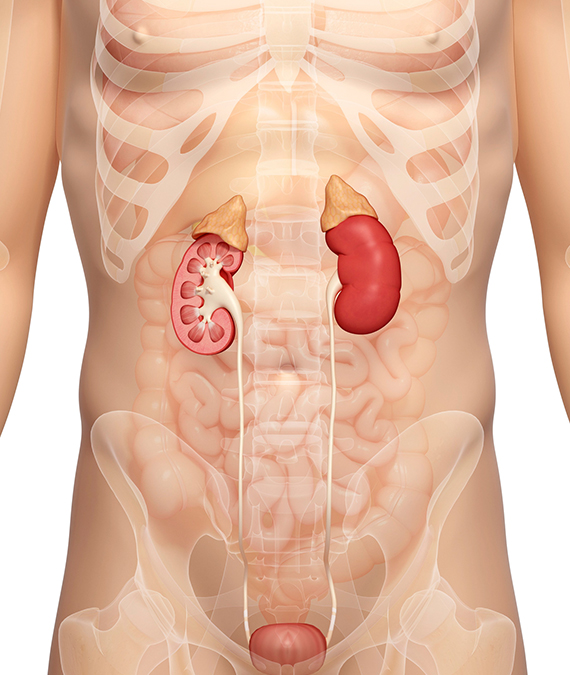Kidney diet cornerstones: Potassium
What does potassium do?
Potassium is an essential mineral that is needed by all tissues in the body. It is referred to as an electrolyte because it carries a small electrical charge that activates various cell and nerve functions. Potassium is found naturally in many foods and as a supplement.
Potassium is necessary for the normal functioning of all cells. It regulates the heartbeat, ensures proper function of the muscles and nerves, and is vital for synthesizing protein and metabolizing carbohydrates.

Potassium and your kidneys
Kidneys play an important role in maintaining safe levels of potassium in the blood. On a daily basis, your body uses the potassium it needs to function, with your kidneys removing any extra potassium. When you have chronic kidney disease (CKD), your kidneys do not remove the extra potassium, and therefore potassium levels will be above normal. This is a condition called hyperkalemia. Hyperkalemia can be dangerous, potentially causing an irregular heartbeat or heart attack!
Potassium and your diet
Nutrition is central to managing your blood potassium levels when on dialysis. You can control the amount of potassium you get in your diet by being aware of which foods are low or high in potassium.
There are many foods that are high in potassium, and the portion size has a direct impact on the total amount of potassium you eat. Some foods high in potassium include:
- Dried fruits (raisins, apricots)
- Beans and lentils
- Potatoes
- Winter squash (acorn, butternut)
- Spinach and broccoli
- Beet greens
- Avocado
- Bananas
- Cantaloupe
- Oranges and orange juice
- Coconut water
- Tomatoes
- Dairy and plant milks (soy, almond)
- Yogurt
- Cashews and almonds
- Chicken
- Salmon
Listening to your clinician’s or dietitian’s advice about what your body needs is essential, particularly if it means changing some of your current habits.
Potassium and your dialysis treatment
Peritoneal dialysis (PD) generally removes excess potassium from the body more efficiently than hemodialysis (HD). If you’re on PD, you are typically able to consume between 3,000 and 4,000 mg of potassium per day. But if you’re being treated with HD, you should limit your potassium intake to about 2,000 mg per day to maintain balance. If you are a home hemodialysis (home HD) patient, it is best to speak with your care team or dietitian about the level of potassium that is recommended for you.
Reference:
Adapted from the original by Christine Nash, MSc(C), RD, CDE*
Antonia Zettas, RD, CDE*
Other pages you may be interested in!

Protein
Protein is a macronutrient important for your everyday health. It is composed of building blocks called amino acids and can be found in every cell of our bodies.

Managing fluids and diet
It is important to keep fluids in balance when living with chronic kidney disease (CKD). PD will help regulate your fluids, but you also need to care for your body.